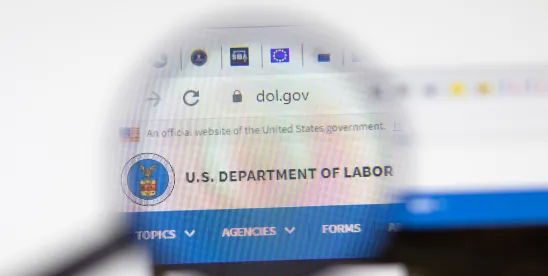The call or visit that no employer wants to receive: a Department of Labor representative asking to look at your payroll records. The Fair Labor Standards Act (FLSA) gives the Department of Labor’s Wage and Hour Division (WHD) the authority to seek the payment of unpaid minimum wages or unpaid overtime. In the past, at the beginning of an investigation into the payroll practices of a business, the WHD sometimes engaged in early settlement discussions that might result in a demand for not only the actual amount of unpaid wages that might be owed, but also payment of a sum in liquidated damages above that amount. That practice will now end.
Figuring Out the Liquidated Damages
Under the FLSA, a company found to have violated the minimum wage or overtime obligations to an employee may be liable for the exact amount of unpaid wages, plus an equal amount in liquidated damages. The backpay timeframe at issue is usually the last two years but can be up to three years if the violations are considered to be willful. For example, if you are found to have underpaid an employee’s overtime by $3,900 per year (five hours a week at time and a half of $15/hour), then you may be liable for two years of those damages ($7,800), plus liquidated damages of an additional $7,800. You can imagine that per employee, that may start racking up some real money.
Historically, the DOL sought liquidated damages when trying to settle FLSA violations during litigation. However, in 2010, the WHD started seeking liquidated damages from employers at the administrative investigation stage – prior to ever filing a lawsuit. That practice was ended in 2020 but started back up again later.
Change In Damages Strategy
In its Field Assistance Bulletin of June 27, 2025, the WHD now says that its agents are not authorized to seek liquidated damages in any negotiated settlement with an employer prior to litigation. The WHD based that decision on its reading of the statute that liquidated damages are reserved for judicial proceedings. A court may decline to award liquidated damages if it feels that the employer acted in good faith and had reasonable grounds to believe its conduct complied with the law. The WHD can no longer supervise the payment of liquidated damages in administrative matters, only in litigation. This policy change only applies to investigations going forward and does not affect matters in the past where liquidated damages may have been paid as part of a settlement.
What Does This Mean for an Employer Under Investigation or in an FLSA Lawsuit?
If an employer is currently embroiled in an investigation with the WHD over wage practices, the WHD agent can no longer threaten liquidated damages as part of a negotiated settlement prior to a lawsuit. If a claim is settled with the government prior to litigation, the settlement payment can only be the actual amount of unpaid wages. However, this does not change the WHD’s ability to seek liquidated damages if it files a lawsuit or tries to settle a lawsuit. Nor does it affect any private right of action under the FLSA – those plaintiffs may still seek liquidated damages.





 />i
/>i

